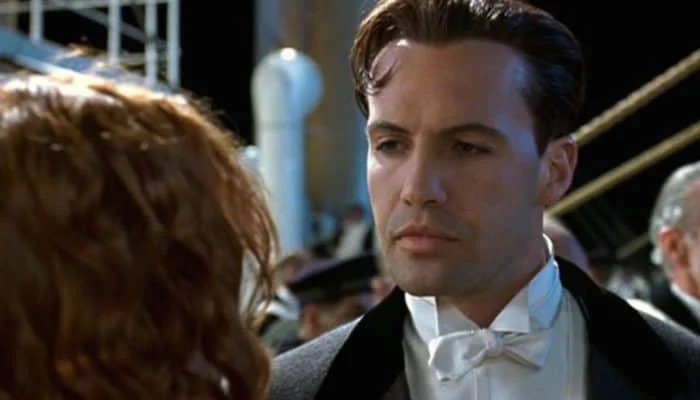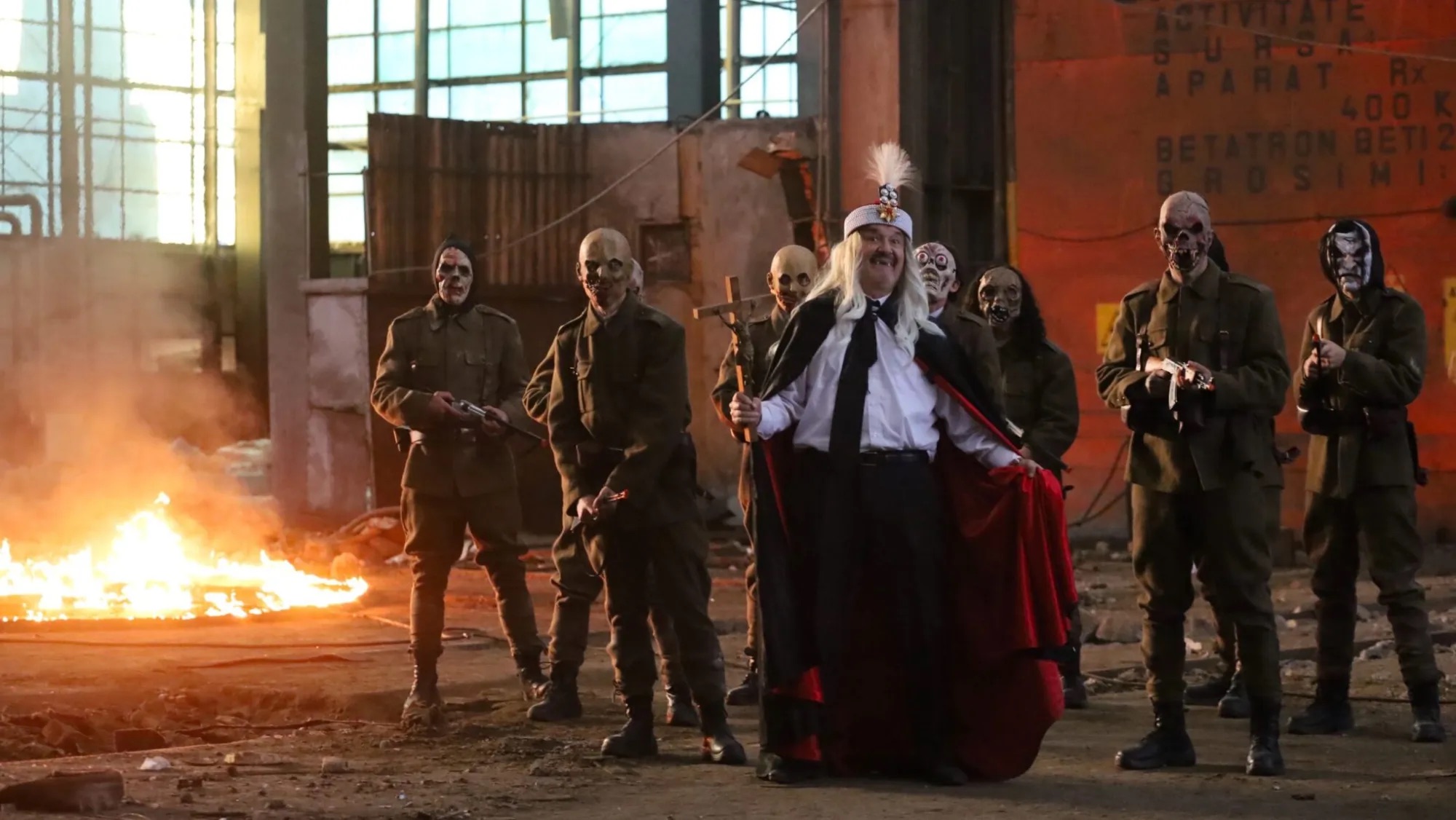The following article is an excerpt from the latest edition of “In Review by David Ehrlich,” a biweekly newsletter in which our Chief Film Critic and Head Reviews Editor rounds up the site’s latest reviews and muses about current events in the movie world. Subscribe here to receive the newsletter in your inbox every other Friday.
Ben Mankiewicz is never someone who I expected to find on the wrong side of film history. The face of Turner Classic Movies since Robert Osborne’s death, in addition to being the grandson of “Citizen Kane” screenwriter Herman J. Mankiewicz and the grand-nephew of “All About Eve” director Joseph L. Mankiewicz,” the Hollywood scion is nothing less than a living emblem of the sanctity and enduring value of 20th century cinema. Delivered in a nasal but welcoming voice that’s capable of making 100-year-old masterpieces sound like vital artifacts and spectacular entertainments all at once, the erudite introductions he performs to camera before each program on TCM are a respite from — perhaps even a rebuke to — the solipsistic and unstudied commentary that passes for criticism on TikTok and YouTube. If not for Ben Mankiewicz and the New York Rangers, I would’ve cancelled my wildly overpriced cable package a long time ago.
Bad news for Spectrum: Both of them have gravely disappointed me this year. Both of them have betrayed their cores in the speculative pursuit of a lost cause. For the Rangers, that moment came when general manager Chris Drury sent a league-wide memo declaring open season on his own roster. For Mankiewicz, the trouble started a few days ago, when he announced his eager participation in a “CBS Sunday Morning” segment promoting — and there’s really no other word for it — the Sphere’s plan to screen a version of “The Wizard of Oz” on the world’s biggest screen later this summer. (Fun fact: the Sphere and the Rangers are owned by the same billionaire.)
It would be one thing if the Las Vegas tourist attraction was simply charging people several hundred dollars for the chance to experience one of the most beloved movies ever made on an 160,000 square foot LED display that warped around their field of vision. I mean, I regularly turn down free tickets to attend ScreenX showings of new releases because I refuse to soil the artistic purity of “Jurassic World Rebirth,” but I suppose there could be worse options for anyone stuck in the desert on a night when the Kelly Clarkson residency was sold out. (Have you listened to her “Fake Plastic Trees” cover? Divine.)
But the Sphere isn’t planning to simply make “The Wizard of Oz” bigger — the plans go way beyond just stretching the sides of Victor Fleming’s shots to approximate something akin to Polyvision. On the contrary, the cut of the 1939 classic screening at James Dolan’s Technodrome has been so radically mutilated by A.I. that it seems less a celebration of the original than an Emerald City-sized version of Cecilia Giménez’s Jesus fresco.

Just when it seemed like “Wicked” would go down in history for giving us the world’s ugliest Oz, the Sphere’s VFX editors have upscaled Fleming’s movie to a garish 16K, trimmed almost 30 minutes out of its runtime by smoothing over cuts and smooshing characters into scenes where they don’t belong (the Sphere experience isn’t conducive to breaks in the image), and filled the extra screen real estate with computer-generated backdrops that guess at what the Yellow Brick Road might have looked like if it had to match the majestic scale of I-95. Perhaps “Frankenstein” would have been a more fitting choice for the Sphere’s first “restoration.”
I obviously don’t know what Mankiewicz stands to gain by shilling for this sacrilegious headache (though it’s very possible that he was under pressure from TCM boss David Zaslav, whose Warner Bros. also owns “The Wizard of Oz”), but I have to shake my head at his claims that these screenings — which can’t be replicated at other venues — are good for classic cinema. That it “keeps them alive,” and that “more people will be interested in Judy and her films.” I, uh, have my doubts that charging $200 for the experience of being attacked by a Kaiju-like Judy Garland will create many new fans of old movies, but my five-year-old son recently developed a brief fascination with cyberpunk because he watched an AI-generated YouTube video about a humanoid ninja coffee cup named Cappuccino Assassino getting killed by state police in a 22nd century rebellion of some kind, so who am I to say.
More troubling to me is Mankiewicz’s insistence that the Sphere is “completing work Fleming and [producer Mervyn LeRoy] would have if it had been possible,” as well as the line of thinking that led him to that defense: “The concerns over AI are real, Mankiewicz wrote in response to an upset tweet, “But it is here. We must accept that.” He’s only half right. And, in the immortal words of the late Caledon Hockley: Not the better half.

There’s no denying that AI is here. It’s everywhere. And not only in the places we can see it or might think to look. People are using ChatGPT instead of Google, to the point that Google’s search engine has been inspired to serve up its own AI instead of people. Premium Twitter users have lost so much trust in reality that they wouldn’t believe their own house was on fire unless Grok confirmed it first. Fake Spotify accounts are listening to fake bands in order to generate real profits at the expense of real artists. Natasha Lyonne has fallen.
Like the unnatural carcinogens that are pumped into the air we breathe, AI has polluted our environment at the behest of an industry that doesn’t care about the damage that it causes to this planet, its resources, or to any of the people who rely on them for their survival. Our kids are exposed to it from a young age (my poor kids have been, at least), our business leaders are sold on it as an inevitability (they’d sell us on anything if it meant they might not have to pay us for anything else), and even some of our artists and scholars are convinced that it might open new avenues for creativity instead of paving over the only viable ones we still have left. These things are happening, they’re happening on purpose, and they’re happening faster than we can process the collateral damage of such widespread “disruption.”
I suppose that’s always been the case to a certain extent. “Progress” has long been the best propaganda for a world that loves to conflate sacrificing the past with creating the future, and art has been inextricably entwined with technology since either of those pursuits were first invented — a fact that movies have made more obvious than just about any other medium. Actualités gave way to montage, silence gave way to sound, and men in rubber suits gave way to motion-captured CGI all in the same period of time that literature only managed to evolve from paper to the Kindle. Some people would call that progress. Others might be a bit more ambivalent about the fact that we got from zoetropes to Netflix in the blink of an eye that lacks any peripheral vision.
Regardless, it would be a categorical mistake to see AI as the next iteration of those earlier paradigm shifts. While I can imagine practical applications of AI (storyboarding comes to mind), it isn’t just another tool at a filmmaker’s disposal or an effective way of democratizing the filmmaking process itself — though Radu Jude’s forthcoming “Dracula” actively uses it as both in order to highlight the technology’s fundamentally vampiric nature. It doesn’t streamline or emphasize human creativity so much as it insists that we’ve had enough of that already, and the algorithms can take it from here.

The perfect form of expression for people who think memes are the ultimate height of comedy, AI doesn’t allow for a world with more artists, it allows the tech industry to create a world that ostensibly doesn’t need them. As “Everything Everywhere All at Once” co-director Daniel Kwan so elegantly put it at a recent event in West Hollywood, AI less represents a new form of storytelling than it does an invasive species to the concept of storytelling itself. It’s a wasp, not a bee. And with all due respect to Mr. Ben Mankiewicz, using AI to preserve the magic of “The Wizard of Oz” is like using cancer to preserve the function of a pancreas.
Which is all the more reason why I take issue with Mankiewicz’s assertion that Fleming would have — not might have — Sphere-ified his masterpiece if only he had the technology to do so. That AI is somehow restoring “The Wizard of Oz” rather than eating away at its essence. It’s an argument that presumes authorial intent as a means of inviting people to override it.
“The Wizard of Oz (Skynet’s Version)” may not imperil our ability to watch Fleming’s classic as it was meant to be seen (one could make the case that television has already malformed the movie’s afterimage more than a gimmick venue like the Sphere ever could), but it has the more broadly pernicious effect of positioning art as fodder for technology; of using one of the most cherished pieces of all American pop art to normalize the vandalism inherent to the use of AI. Submitting “The Wizard of Oz” to this technology doesn’t retrench the film’s legacy, it desecrates it. It’s the cinematic equivalent of that awful “immersive Van Gogh experience.” And it clarifies how the technocratic plunderers we’re permitting to build the world of tomorrow see even the greatest films — or worse, especially the greatest films — as just more grist for the mill.
If there’s any silver lining to the Sphere’s “Wizard of Oz,” it’s that it serves as a towering reminder that AI is not art. It doesn’t want to be art, or to enrich art, or to inspire more art. It belongs in a separate lane, and its increasingly aggressive overtures towards the creative space threaten nothing less than a hostile takeover.
If there’s any silver lining to Mankiewicz’s wrongheaded endorsement of the Sphere’s “Wizard of Oz,” it’s that it serves as an equally glaring reminder that we don’t have to accept it — and that it feels like a flagrant own goal to watch a smart person surrender this early in the fight.
It’s too late to hope for a different future, you might say. This shit has metastasized well beyond our control, and the movies, which have survived a constant stream of existential threats since their inception, should officially be transferred to hospice care for what’s left of their short life as a medium. Another film critic shaking his fist at the sky isn’t going to change anything — shaking their fists at the sky and not changing things is basically 90% of what those blowhards get paid to do these days. Besides, didn’t the one who wrote this article just say that he lets his kid watch Italian Brainrot?
Well, yes. A part of me wants my son, even at his young age, to learn how to navigate the world on his own terms, just as another, much larger part of me is just too fucking tired at the end of the day to police the random garbage he watches before our nightly viewing of “The Bad Guys” (this might just be the Stockholm Syndrome talking, but “The Bad Guys” kind of rips?). But I’ve also explained to him that an AI chimera like Tralalero Tralala — a great white shark who wears Nikes on his fins — lacks the animating spark that he can find in any frame of “Bluey,” or even, dare I say it, “Ice Age: The Meltdown,” and I’ve been thrilled to discover I didn’t even have to do that.

It turns out that even a five-year-old can sense the difference between something that was made with care and something that was generated without thought, and it’s been amazing to see how much deeper my son has naturally engaged with the former. (I’m not saying “The Bad Guys 2” is his most anticipated movie of all time because it takes a vehement stance against being ingested by AI, but I am saying that neither he nor anyone else could ever be so excited to watch something that AI had already spit back out.) People are born knowing the difference, and so there’s no sense in accepting that we have to let “progress” condition us otherwise just so billionaires can sit on the shoulders of giants in order to make themselves feel tall — to borrow a line from a movie about the dehumanizing nature of modern technology.
The truth is that AI’s incursion into the arts is nothing without our complete acquiescence at every level. AI still needs us so much more than we need it, especially in the entertainment sector. For evidence, look no further than Amazon’s $20 million bet on Fable, a doomed novelty service that promises to let people create their own episodes of shows like “South Park” or whatever. Acquired on the same day that writer/director Scott Z. Burns warned IndieWire’s Chris O’Falt that generative AI is a consumer product aimed at engagement rather than a viable replacement for narrative storytelling, Fable — the so-called “Netflix of AI” — epitomizes why these tools are useless without a bedrock of human creativity to steal from, and its certain failure will be an expensive testament to the fact that algorithms will never create new things. And not just because they’re too busy mutilating old ones.
There is nothing inevitable about what comes next, and to read Daniel Kwan say as much within hours of watching Mankiewicz suggest otherwise hammered that point home for me stronger than anything has before. “Now is the time to put our hands on the steering wheel,” Kwan said. “Because if you don’t, they will.” If Ben Mankiewicz lost his grip on the situation, that’s only because he lost sight of the fact that the film industry is still in the driver’s seat. And it will be for as long as people remember that the great and powerful Oz had nothing to offer Dorothy in the end — nothing beyond the recognition that she already had everything she needed to make her dreams come true.
Want to stay up to date on IndieWire’s film reviews and critical thoughts? Subscribe here to our newly launched newsletter, In Review by David Ehrlich, in which our Chief Film Critic and Head Reviews Editor rounds up the best new reviews and streaming picks along with some exclusive musings — all only available to subscribers.



